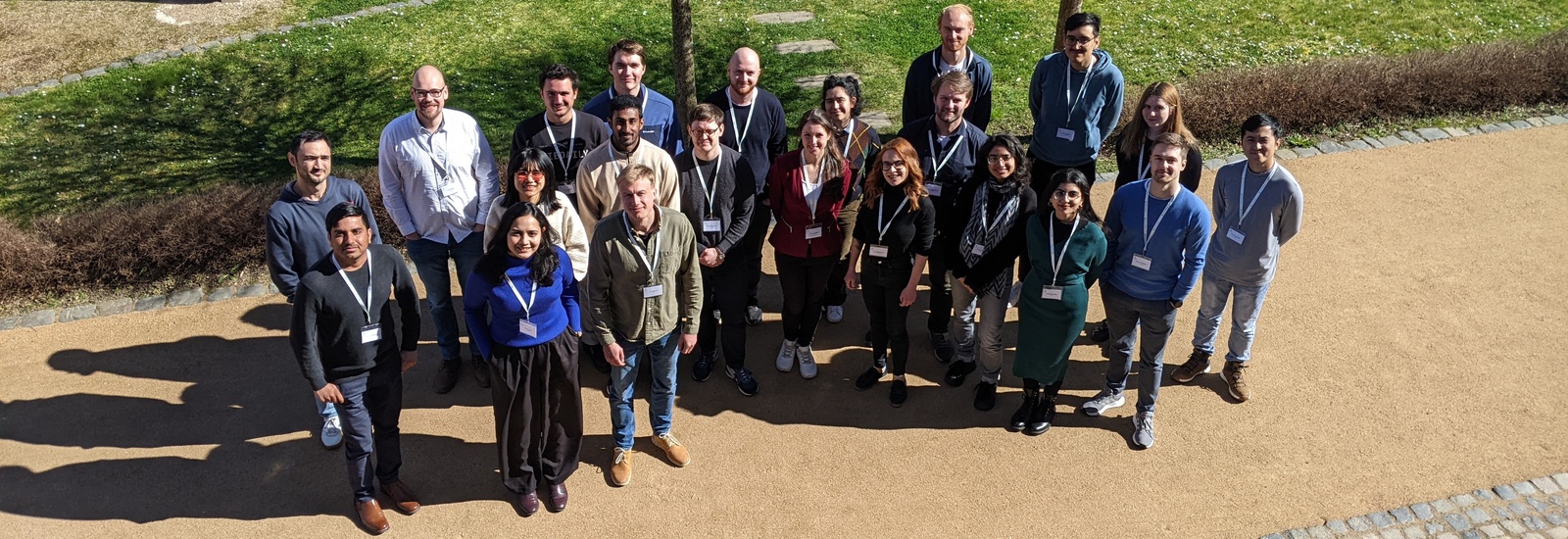Graduate School
The in-depth research-oriented training after the master's degree is a central activity area of SECAI. Due to the special, interdisciplinary orientation of the school, there are not only doctoral students but also so-called clinician scientists, who have already completed a doctoral thesis and whose goal in SECAI is a (first) major publication.
Each year SECAI hires a cohort of about ten doctoral students and clinician scientists, typically starting in September. Calls for the positions of the Graduate School are usually published in spring of the corresponding year. You can find them on our job portal when they are open. The school favors a “tight” three-year model for completing doctoral theses, but also understands that this plan may need adjustment due to interdisciplinary differences, e.g., clinician scientists finishing in two years, personal circumstances and professional causes.
In addition to the doctoral students and clinician scientists directly funded by SECAI, other AI researchers of comparable career stages will be integrated into the School. These associate members will be closely integrated scientifically and organizationally and will have access to all SECAI funding programs. In addition, SECAI networks with other thematically relevant graduate programs and implements joint activities.
Doctoral Students and Clinical Scientists



Topic: Intuitive Modelling support for Knowledge-Based Systems

Topic: Spinnaker Cloud Computing for Computer-aided Drug Discovery

Topic: Surg-Morph: Neuromorphic Surgical Video Processing on the SpiNNaker2 Platform

Topic: Explaining Composite AI: From Formal Analysis to Overall Understanding

Topic: Sim2Real: Simulated Training and Test Data for Biomedical Image Analysis

Topic: Neuromorphic Information Processing: Hardware Realization of the Modified Stochastic Synaptic Model

Topic: Spinnaker Cloud Computing for Computer-aided Drug Discovery

Topic: MemAI: Memristive Dynamic Models for Smart AI Systems

Topic: 2D-Material-Based Synapses for Neuromorphic Computing

Topic: AI in Oncology

Topic: Personalization in oncology – Prediction of cancer therapy effectiveness from Omics data through structural modeling and AI

Topic: Teaching artificial intelligence conformational dynamics of proteins

Topic: GeoSOP: Geometry for surgical outcome prediction

Topic: The Use of AI by the Civil Service in Light of the Principles of Democracy and the Rule of Law

Topic: AI Controlled Wireless Mesh Networks for Medical Applications in Crisis Situations (AWESOME)

Topic: SuperTouch - Data-driven tactile sensing for robot-assisted cancer surgery

Topic: Adaptive / Context Sensitive Data Provision in Mobile Applications


Topic: Features of Fitness Landscapes


Topic: Explainable AI for reliable computer assisted surgery

Topic: External Systems Biology Knowledge Integration in Large Language Models

Topic: What are GPCR’s and why are they important?

Topic: Large Language Models (LLMs) and the Formalization of Mathematics

Topic: Multi-agent Belief Management

Topic: Theoretical Foundations of Ethical and Interpretable Diffusion Models

Topic: StochasticAI – Integrating Stochastic Modeling with AI

Topic: Answer Set Navigation alongside Quantitative Reasoning

Topic: FunLog: A Functional Approach to Modular Logic Programming

Topic: Learning the Rules of Molecular Design

Topic: Artificial Intelligence-Accelerated Drug Discovery on the SpiNNaker2 Platform

Topic: Integration of Structured Knowledge into Language Models for Cell Biology

Topic: Explainable AI for reliable computer assisted surgery

Topic: Tact-Morph: Tactile Sensor & Robotics Processing on the SpiNNaker2 Neuromorphic Compute Platform

Topic: BioAI: Bio-Computing for Sustainable and Trustworthy Artificial Intelligence Computation

Topic: Non-Monotonic Uncertainty Handling and Learning

Topic: SAVi: Semantic Analysis of Surgical Videos
